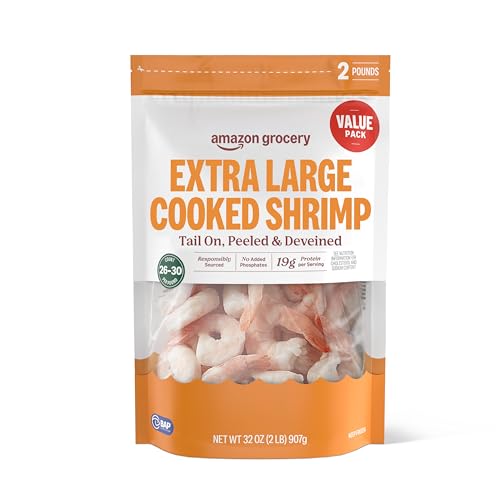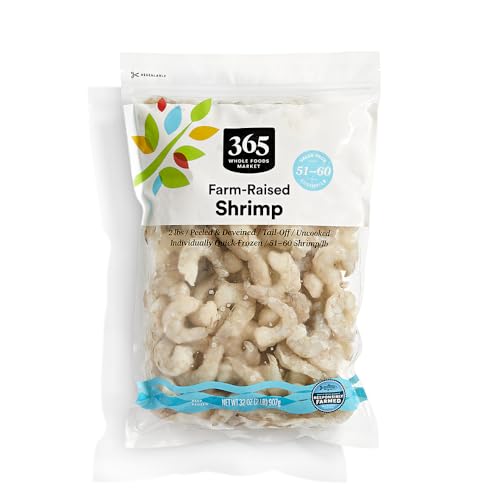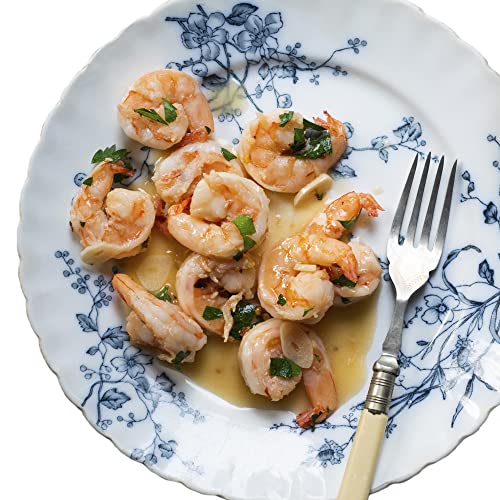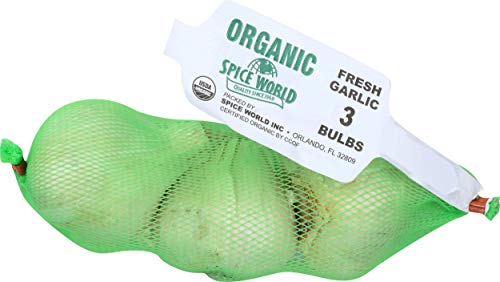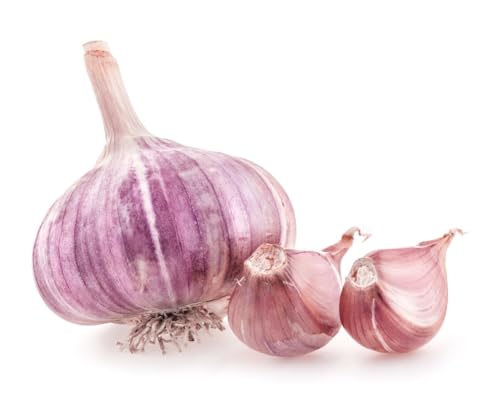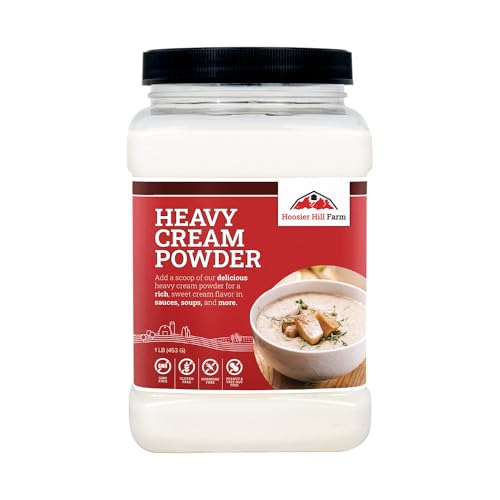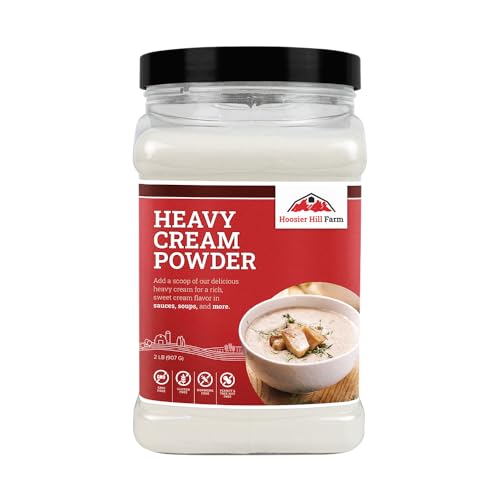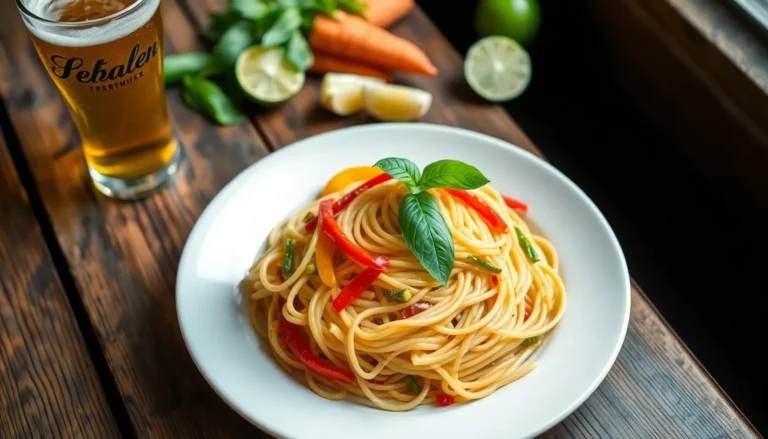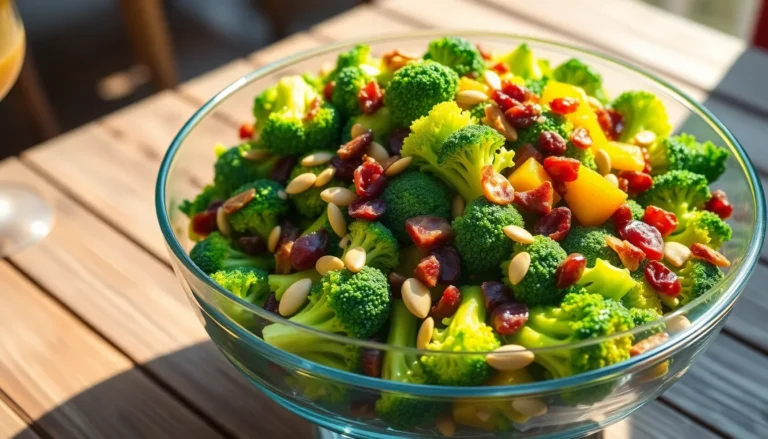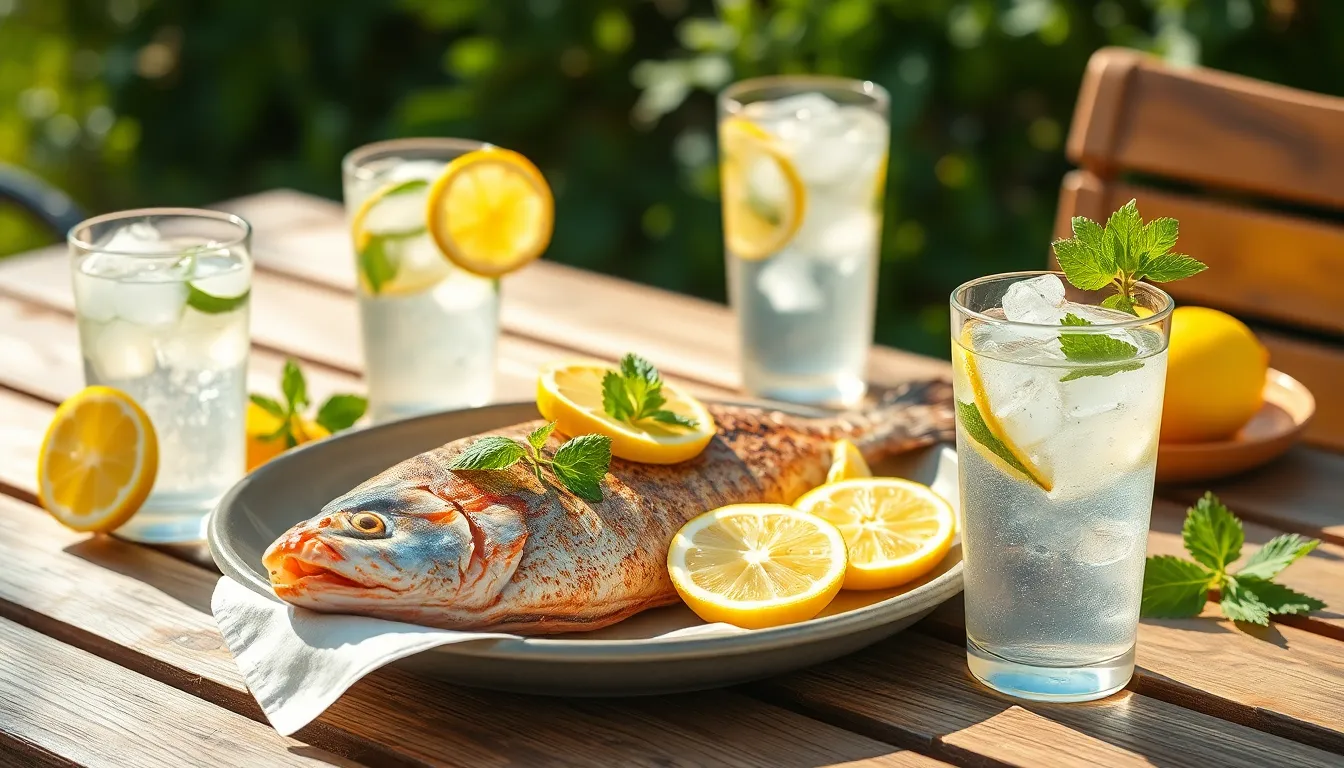
Slow Cooker Recipes: Easy Meals, Less Effort!
Family-friendly dishes for busy people — quick prep, delicious results.
Grab yours for $4Looking for the perfect fish and lemonade pairing for your next summer gathering? This refreshing combination might seem unusual, but it’s a match made in culinary heaven that’ll have your guests asking for seconds.
Fish and lemonade is a surprisingly delightful pairing that brings together the light, flaky texture of perfectly cooked fish with the bright, zesty notes of homemade lemonade. The acidity in the lemonade cuts through the richness of the fish, creating a balanced meal that’s perfect for hot summer days. Whether you’re serving grilled tilapia with a glass of classic lemonade or incorporating lemon into your fish marinade, you’ll find this combination irresistibly refreshing.
You’ll love how this simple yet sophisticated duo transforms an ordinary meal into something special. The tangy citrus complements seafood beautifully, making it a staple in coastal cuisines worldwide.
The Perfect Fish and Lemonade Pairing
Creating the perfect fish and lemonade pairing requires attention to both the preparation of your fish dish and crafting a complementary lemonade. This harmonious combination balances flavors and textures to deliver a refreshing culinary experience.
Selecting the Right Fish
Choose light-textured fish varieties that work best with citrus flavors. Tilapia flaunts a mild flavor profile making it ideal for lemonade pairings. Sea bass offers a buttery texture that contrasts beautifully with tart lemonade. Snapper brings a slightly sweet undertone that enhances the citrus notes in your drink.
Fish with higher fat content like salmon or mackerel can also work well when prepared with lighter seasonings. Their rich texture provides an interesting contrast to the crisp refreshment of lemonade.
Preparing Your Fish
Marinate your fish in a simple mixture of olive oil, fresh herbs, and a splash of lemon juice for 20-30 minutes before cooking. Grill your fish over medium-high heat for 3-4 minutes per side until it flakes easily with a fork. Alternatively bake fish at 375°F for 12-15 minutes depending on thickness.
Season with light herbs like dill, parsley, or thyme that won’t overpower the delicate fish flavor. Add a pinch of salt and white pepper to enhance the natural taste without competing with your lemonade.
Crafting the Perfect Lemonade
For a classic lemonade that pairs wonderfully with fish dishes follow this simple recipe:
Ingredients
- 1 cup freshly squeezed lemon juice (approximately 6-8 lemons)
- 3/4 cup granulated sugar
- 5 cups cold water
- 1/2 cup fresh mint leaves (optional)
- Ice cubes
Preparation
- Combine sugar with 1 cup of water in a small saucepan
- Heat until sugar dissolves completely then allow to cool
- Mix the cooled syrup with fresh lemon juice and remaining water
- Add mint leaves if using and let steep for 10 minutes
- Strain into a pitcher filled with ice
- Serve in chilled glasses with lemon slices as garnish
Serving Suggestions
Serve your fish hot while offering chilled lemonade in frosted glasses. Present lemonade in a clear glass pitcher showcasing its vibrant color alongside your beautifully plated fish. Garnish both the fish and lemonade with thin lemon slices for visual cohesion.
Consider serving family-style for casual gatherings with a large platter of grilled fish and a generous pitcher of lemonade. For more formal occasions individual portions of fish paired with personal carafes of lemonade create an elegant presentation.
Flavor Enhancement Tips
Add cucumber slices or fresh berries to your lemonade for subtle flavor variations that still complement fish dishes. Incorporate herbs like basil or rosemary into both your fish preparation and lemonade for unified flavor profiles. Consider a light honey glaze on your fish that echoes the sweetness in your lemonade.
Temperature contrast plays a crucial role – the cool lemonade refreshes your palate between bites of warm flaky fish creating a ever-changing dining experience.
Why Fish and Lemonade Work So Well Together
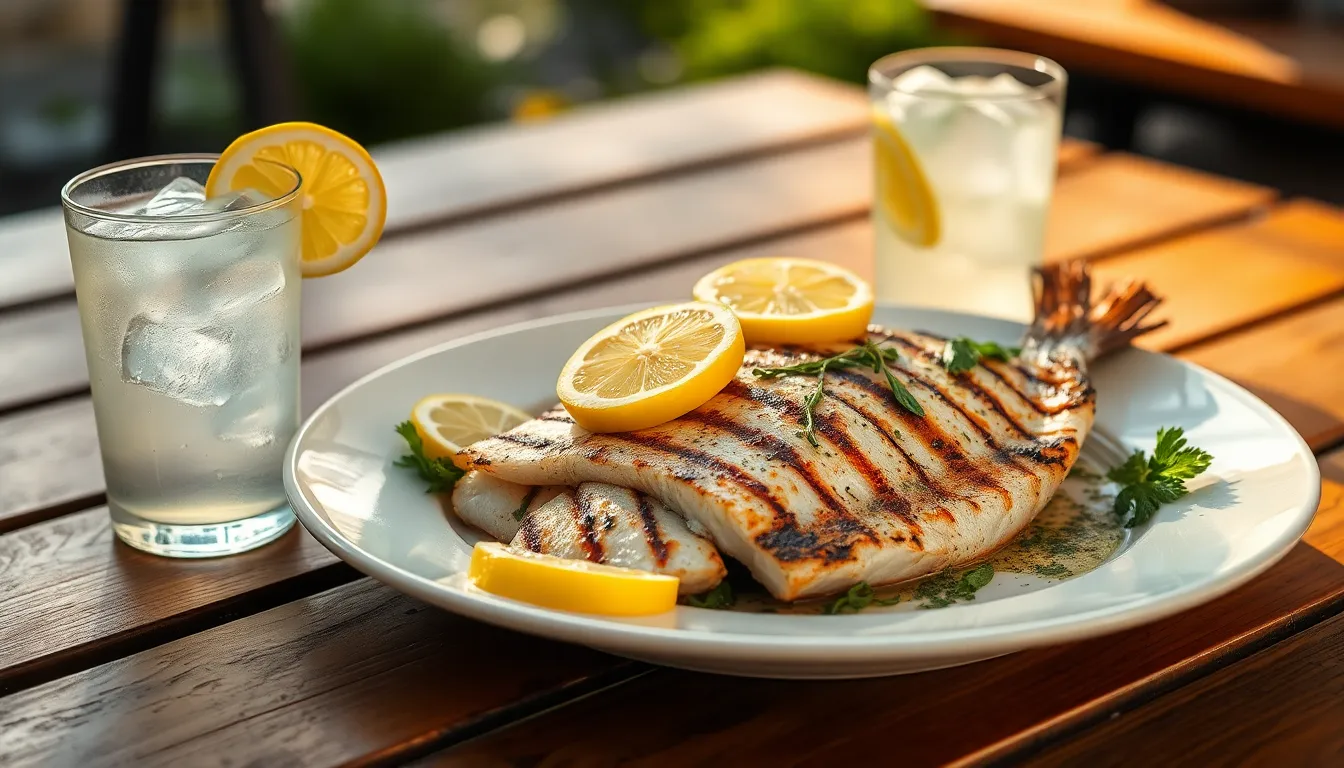
The pairing of fish and lemonade isn’t just a coincidence—it’s based on culinary science that makes your taste buds sing. This classic combination works on multiple levels to create a truly enhanced dining experience.
Lemonade contains citric acid that actively neutralizes the fishiness often associated with seafood dishes. The bright acidity from lemon juice balances the natural saltiness and briny flavors in fish perfectly. This acid-salt interaction creates what culinary experts describe as a harmonious flavor dance on your palate.
Fresh citrus elements in lemonade brighten the overall flavor profile of fish dishes. When you squeeze lemon over fish or pair it with a glass of homemade lemonade, you’re improving the seafood’s natural qualities while simultaneously taming any overwhelming marine notes.
The vitamin C and antioxidants present in real lemonade offer health benefits that complement a fish-based meal. These nutrients support proper digestion—particularly helpful when consuming protein-rich seafood. Your body receives nutritional support while enjoying a delicious flavor combination.
Temperature contrast plays a important role in this pairing’s success. The cool, refreshing nature of chilled lemonade provides a pleasant counterpoint to warm cooked fish. This temperature variation creates a ever-changing eating experience where each sip cleanses and prepares your palate for the next delicious bite.
Various fish varieties respond differently to citrus pairings:
- Light white fish (tilapia, sea bass, cod): These delicate options benefit most from the gentle acid balance lemonade provides
- Fatty fish (salmon, mackerel): The acid cuts through richness, creating balance
- Shellfish (shrimp, scallops): Lemonade highlights their natural sweetness
The versatility of this pairing extends across cooking methods. Whether your fish is grilled, baked, poached, or fried, lemonade serves as the perfect accompanying beverage to enhance the meal’s overall flavor profile.
This combination represents a global culinary tradition found in coastal cuisines worldwide. From Mediterranean fish dishes served with lemon to Caribbean seafood accompanied by citrus beverages, cultures around the industry have recognized this exceptional pairing for centuries.
Equipment Needed

For Fish Preparation
To properly prepare your fish dish that will pair perfectly with homemade lemonade, you’ll need several specialized tools:
- A quality fish knife designed specifically for filleting and deboning
- Fish scaling tool or the back of a knife for removing scales
- Cutting board (preferably a separate one dedicated to seafood)
- Seafood pan or grill pan with non-stick surface
- Fish spatula with a thin, flexible edge for delicate turning
- Kitchen thermometer to ensure proper cooking temperature
- Pliers for removing any stray bones
- Seafood serving platter for presentation
These specialized tools will help you handle your fish efficiently from preparation to serving, ensuring the best results for your meal.
For Lemonade Making
Creating refreshing homemade lemonade requires a different set of equipment:
- Lemon squeezer or juicer (manual or electric)
- Measuring cups and spoons for precise ingredient proportions
- Saucepan for preparing simple syrup
- Mixing spoon or whisk
- Pitcher large enough to hold your finished lemonade
- Fine mesh strainer to remove pulp and seeds
- Ice cube trays for perfectly chilled lemonade
- Serving glasses (preferably frosted for an enhanced experience)
- Garnish knife for cutting lemon wheels or mint
The right equipment makes the lemonade-making process more efficient and ensures consistent results every time you prepare this refreshing beverage to accompany your fish.
Optional Specialized Equipment
For those looking to elevate their fish and lemonade pairing experience:
- Herb scissors for quickly cutting fresh herbs for fish seasoning
- Citrus zester to capture aromatic oils from lemon peels
- Fish grilling basket if cooking outdoors
- Muddler for incorporating fresh berries or herbs into lemonade
- Glass infuser pitcher for creating flavored lemonades
- Decorative ice molds for presentation
- Stripping basket for those who catch their own fish
These additional tools can enhance both preparation and presentation, taking your fish and lemonade pairing to a more sophisticated level.
Ingredients for Lemon-Herb Grilled Fish
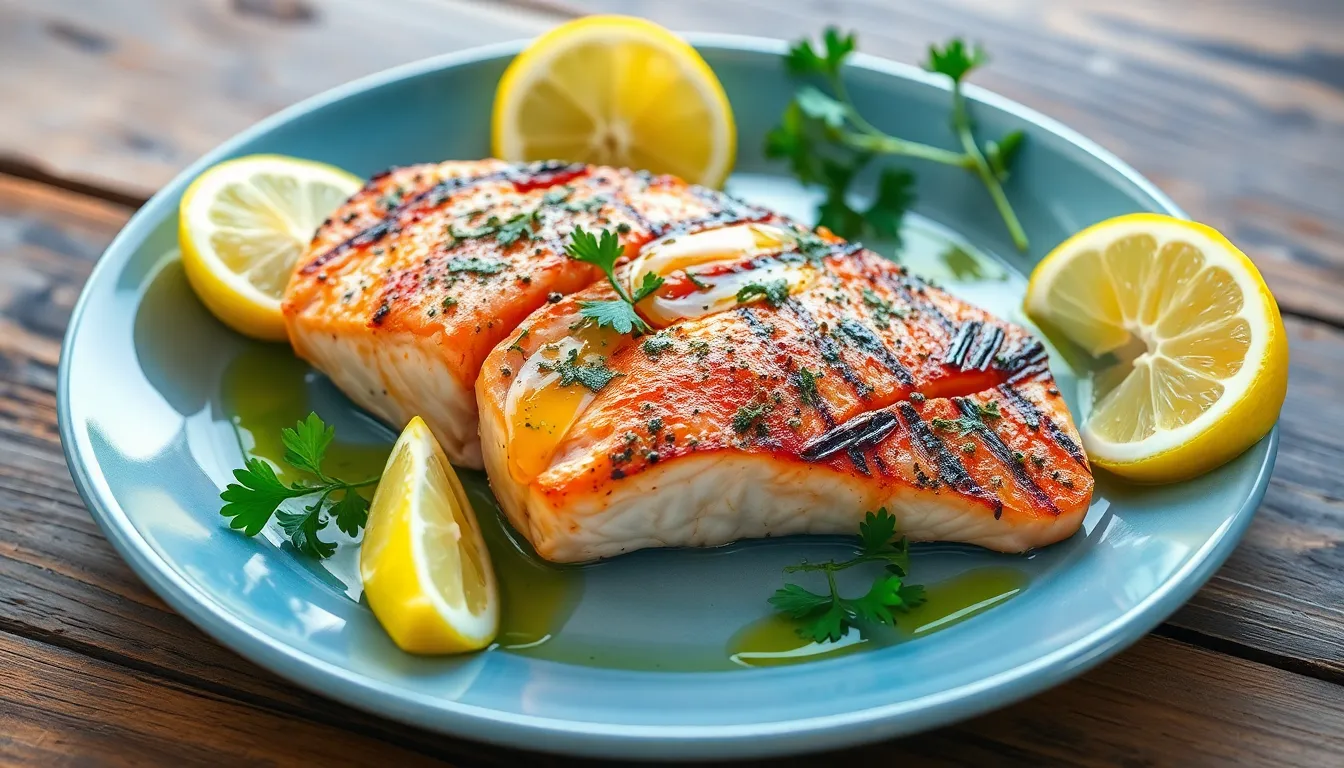
Creating the perfect lemon-herb grilled fish requires fresh ingredients that balance bright citrus flavors with aromatic herbs. This combination enhances the natural taste of fish while keeping the dish light and healthy.
For the Fish Marinade
- 1 fish fillet (salmon, tilapia, trout, or sea bass)
- 1 tablespoon olive oil
- 1 tablespoon freshly squeezed lemon juice
- 1 teaspoon fresh parsley, chopped
- 1 teaspoon fresh dill, chopped
- 1 garlic clove, minced
- Salt and pepper to taste
For the Garnish
- Lemon wedges for serving
- Additional chopped fresh parsley (optional)
Ingredients for Homemade Lemonade
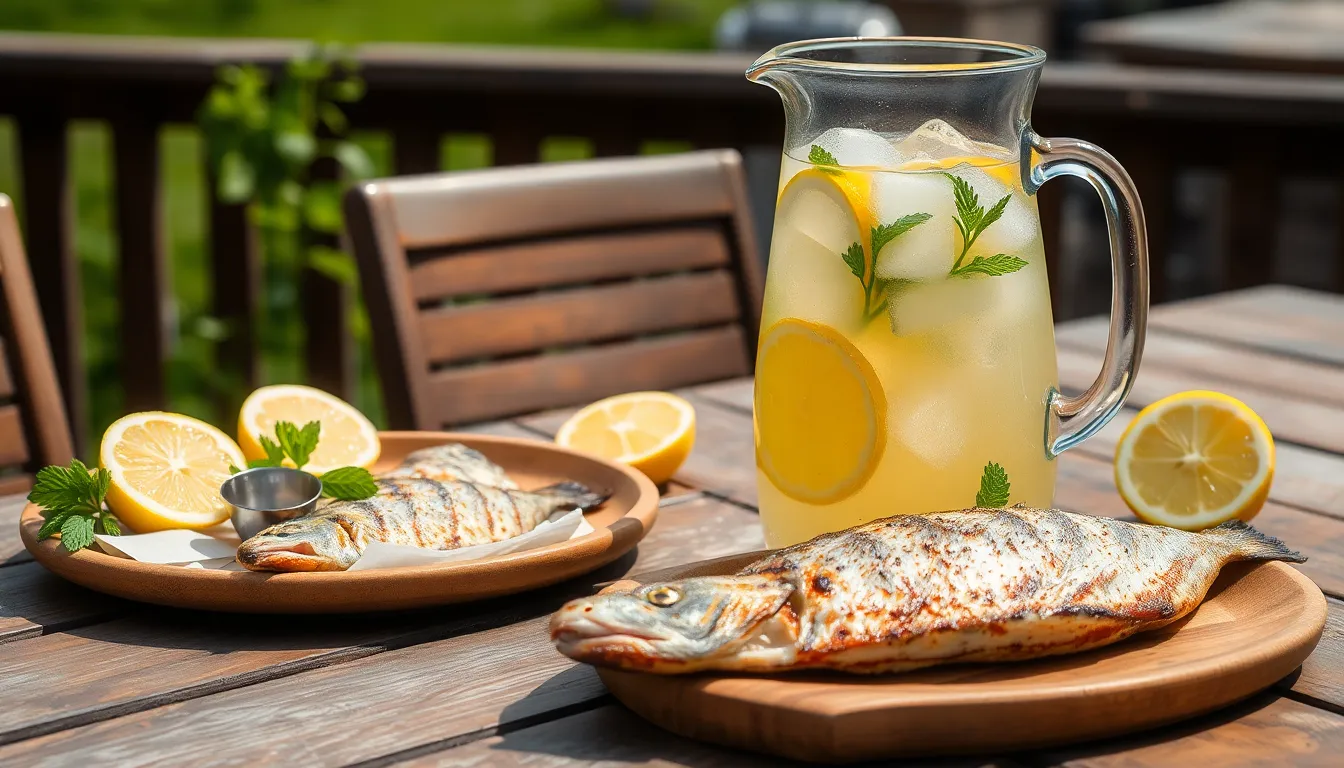
Creating the perfect homemade lemonade to complement your fish dishes requires simple ingredients that work together to produce that classic tangy sweetness. Quality ingredients make all the difference in achieving the ideal balance.
For the Lemon Syrup
- 6-8 fresh lemons (enough to yield 1 cup of juice)
- 1 cup granulated sugar
- 1 cup water
- 1-2 teaspoons lemon zest (optional for enhanced flavor)
The foundation of great lemonade begins with this syrup. Fresh lemons provide superior flavor compared to bottled juice, delivering bright acidity that cuts through the richness of fish dishes. Organic lemons work particularly well if you plan to use the zest. The equal ratio of sugar to water creates a balanced syrup that dissolves completely when heated, resulting in smooth sweetness throughout your lemonade.
For Serving
- 3-4 cups cold water or sparkling water
- Ice cubes
- Fresh lemon slices for garnish
- Mint sprigs (optional)
- Berries or cucumber slices (optional for flavor variations)
Cold water dilutes the concentrated lemon syrup to your preferred strength. Sparkling water can add a refreshing effervescence that pairs exceptionally well with grilled fish varieties. The ice keeps your lemonade perfectly chilled, offering that refreshing temperature contrast against warm fish dishes. Fresh lemon slices not only enhance visual appeal but also signal to guests the authentic nature of your beverage. Mint provides an aromatic element that complements herbs used in fish preparation while cucumber or berry additions can create custom variations that match exact fish flavors.
Preparing the Fish
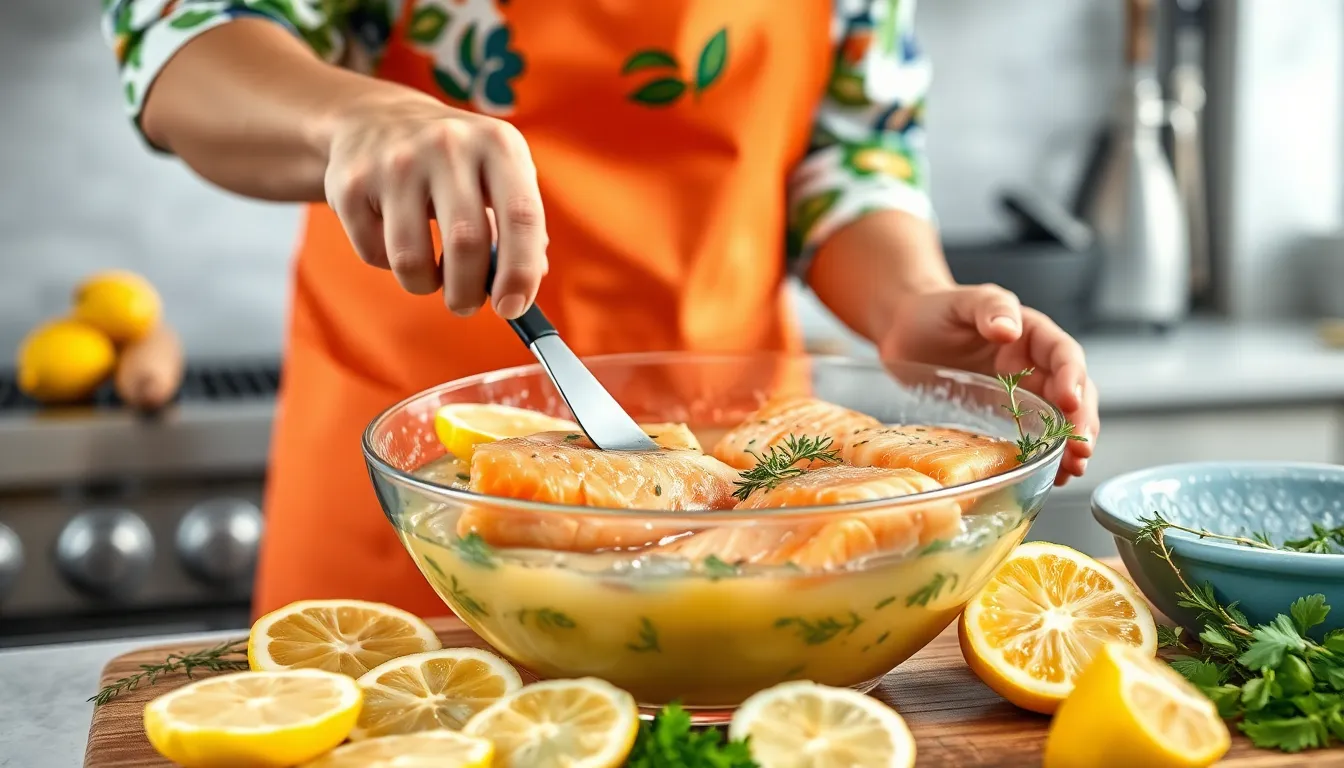
Selecting the right fish and preparing it properly are essential steps for creating a delicious lemonade-marinated fish dish. Fresh fillets absorb flavors better and yield the best texture when cooked.
Selecting the Perfect Fish
Choose fresh fish fillets such as salmon for a richer flavor or white fish varieties like tilapia or sea bass for a lighter option. Quality matters immensely here – look for clear eyes and firm flesh when selecting whole fish, or bright, translucent appearance for fillets. Pat the fish completely dry with paper towels to ensure proper marinade absorption and better browning when grilled. Examine the fillets carefully for pin bones by running your fingertips along the surface, removing any you find with tweezers or fish pliers. Season the fish lightly with salt and pepper before adding it to your marinade – this pre-seasoning step enhances flavor development throughout the flesh.
Marinating Process
Lemonade creates an exceptional marinade base that infuses fish with bright citrus notes while gently tenderizing the flesh. Combine 1 cup lemonade (or frozen lemonade concentrate) with ¼ cup soy sauce, 2 tablespoons olive oil, 2 tablespoons brown sugar, 2 teaspoons minced fresh ginger, 2 crushed garlic cloves, and lemon zest in a bowl. Whisk these ingredients thoroughly until the sugar dissolves completely. Place your prepared fish in a shallow dish or resealable plastic bag and pour the marinade over it, ensuring even coverage. Cover the dish or seal the bag and refrigerate for 15-60 minutes depending on the thickness of your fillets – thinner pieces need less time. Avoid over-marinating as the acid in lemonade can begin breaking down the fish too much, resulting in mushy texture. Remember to reserve half the marinade before adding the fish if you plan to use it for basting or as a serving sauce later.
Grilling Tips
Preheat your grill or grill pan to medium-high heat before cooking begins. Brush the grates lightly with oil to prevent sticking and ensure beautiful grill marks. Remove the fish from the marinade and let excess liquid drip off. Discard the used marinade for food safety reasons. Place the fish skin-side down first if using skin-on fillets, cooking undisturbed for about 5 minutes until you see clear grill marks. Flip the fish carefully using a wide fish spatula, then place lemon slices directly on top of each fillet. Continue grilling for another 5-10 minutes until the fish flakes easily when tested with a fork. Timing varies based on thickness – a good rule is 10 minutes total cooking time per inch of thickness. Test for doneness by inserting a fork into the thickest part; properly cooked fish should flake with gentle pressure and appear opaque throughout. Serve immediately drizzled with your reserved marinade and garnished with fresh herbs for a beautiful presentation that complements the refreshing lemonade pairing.
Making Fresh Lemonade

Lemonade has remained essentially unchanged for over a thousand years with its simple combination of water, lemon juice, and sugar. Ancient Egyptians crafted the earliest recorded lemonade recipes while the Mediterranean region is widely considered the birthplace of this refreshing beverage due to its abundant lemon cultivation.
Creating the Perfect Sweetness
The secret to exceptional lemonade lies in achieving the ideal balance between tartness and sweetness. Original Parisian lemonade from 1630 combined sparkling water, fresh lemon juice, and honey, sold by vendors carrying tanks on their backs. You’ll want to mix fresh lemon juice with either sugar or simple syrup for modern homemade versions. Thorough mixing ensures the sugar dissolves completely, creating a smooth sweetness throughout your drink. Adjust the sugar quantity based on your preference and the natural tartness of your lemons for a perfectly balanced refreshment.
Adding Special Touches
Elevate your basic lemonade with thoughtful additions that transform it into something extraordinary. Consider incorporating carbonation for a sparkling effect or experimenting with additional citrus like oranges or pink lemons for complex flavor profiles. Vietnamese cuisine offers a fascinating variation called “chanh muoi” or salty lemonade, which undergoes a fermentation process similar to traditional fish sauce production. This unique recipe has been passed down through generations and delivers distinctive flavor along with potential health benefits. The cultural connection between fish sauce fermentation techniques and salty lemonade represents an intriguing culinary crossover that adds depth to your beverage repertoire. For a modern twist, you might draw inspiration from commercial innovations like Fishers Island Lemonade, which combines traditional lemonade qualities with spirits for an adult refreshment that pairs wonderfully with seafood dishes.
Serving Suggestions
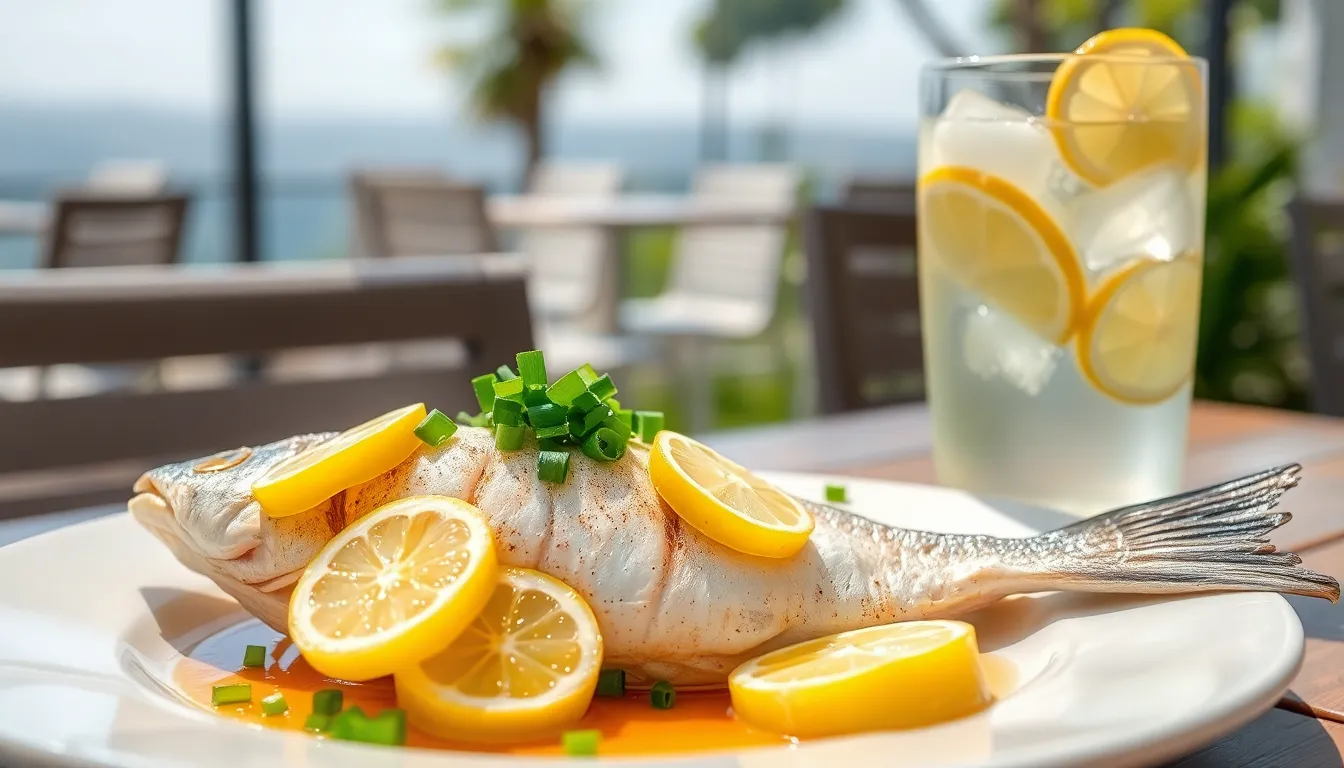
Elevate your fish and lemonade pairing with these thoughtful serving ideas that enhance both presentation and flavor. The right plating techniques and lemonade presentation can transform this simple combination into an impressive culinary experience.
Plating the Fish
Arrange your fish fillets as the centerpiece of your plate with intentional garnishes that complement the lemonade flavors. Thinly sliced lemon rounds and freshly chopped green onions create visual appeal while improving the citrus aromas of your dish. For lemonade-marinated salmon, position the fillet on a bed of steamed vegetables that have been lightly seasoned with the same flavor profile. Consider drizzling a small amount of olive oil or reduced marinade (if properly cooked for food safety) over the fish just before serving to add sheen and moisture. Serve vegetables alongside your fish rather than underneath if you prefer to showcase the beautiful color and texture of your perfectly cooked fillet. Create height on your plate by stacking components or leaning the fish against a small mound of complementary sides like herbed rice or roasted potatoes.
Lemonade Presentation
Serve your lemonade in clear glasses to showcase its bright color and garnishes that echo the flavors in your fish dish. Fill frosted glasses with ice before pouring in freshly made lemonade for an especially refreshing presentation on hot days. Add visual interest by floating thin lemon slices or a sprig of the same herbs used in your fish marinade on top of each glass. For a sophisticated twist, serve lemonade in stemmed glassware with a sugar or salt rim that complements your fish seasoning. Consider offering both traditional sweet lemonade and a more savory version with less sugar when pairing with delicate fish varieties. Present your beverage in a beautiful glass pitcher alongside individual glasses for a family-style service that encourages refills throughout the meal. Matching garnishes between your plated fish and lemonade creates a cohesive visual experience that ties the entire meal together.
Variation Ideas
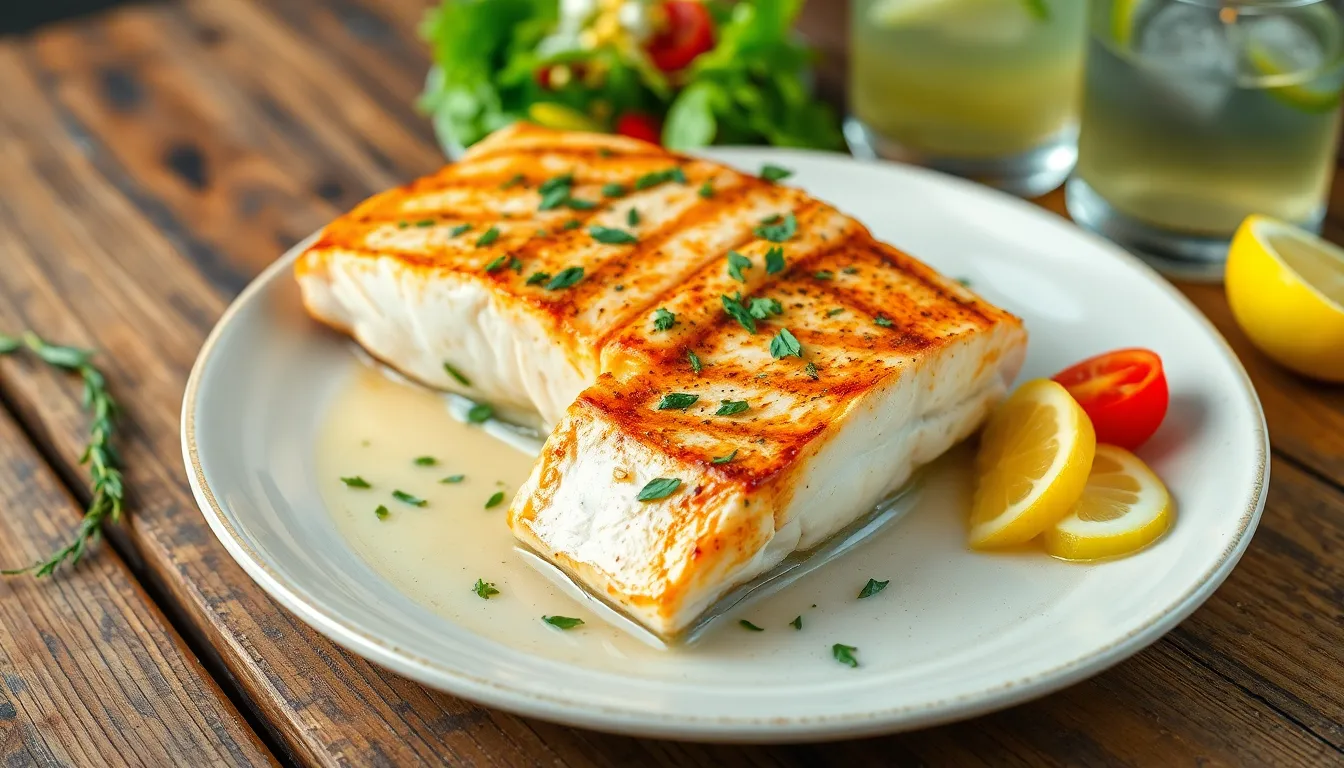
The beauty of the fish and lemonade pairing lies in its versatility, offering countless possibilities to customize flavors according to your preferences. Explore these creative variations to elevate your culinary experience.
Different Fish Options
Salmon shines when marinated with lemonade, creating a tangy and vibrant flavor profile. Try combining lemonade with soy sauce, olive oil, ginger, brown sugar, garlic, and lemon zest for a marinade that enhances salmon’s natural richness. This combination works perfectly for a quick 12-minute roast or as a poaching liquid that imparts a delicate citrus aroma to complement the fish’s texture.
Mahi-Mahi benefits tremendously from a lemonade-based marinade. Its firm texture and mild flavor absorb the bright citrus notes while being tenderized by the acidity. Mix your lemonade with Worcestershire sauce, chili sauce, and fresh herbs before grilling for an impressive main course with balanced flavors.
Catfish pairs wonderfully with lemonade concentrate mixed into a creamy sauce. Blend the concentrate with mayonnaise, fresh dill, and salt to create a tangy dressing that cuts through the distinctive flavor of catfish while improving its natural qualities.
White Fish varieties like cod or haddock transform into exceptional fish and chips when battered with lemonade. The carbonation and natural acidity in lemonade create an incredibly light and crispy crust that elevates the simple dish to gourmet status.
Lemonade Flavor Combinations
Classic Citrus & Ginger brings warmth and complexity to your fish dishes. Fresh ginger adds a subtle heat that balances the sweetness of lemonade and brown sugar in marinades. This combination works particularly well with salmon, creating layers of flavor that highlight the fish without overwhelming it.
Savory & Spicy profiles emerge when you mix lemonade with Worcestershire sauce, chili sauce, and aromatic herbs. This bold marinade penetrates deep into firm fish like mahi-mahi, providing depth and a pleasant heat that contrasts beautifully with the cool, refreshing lemonade served alongside.
Creamy & Herbal lemonade sauces offer a sophisticated twist on traditional preparations. Combining lemonade concentrate with mayonnaise and fresh dill creates a velvety, tart dressing that perfectly complements catfish and other freshwater varieties. The herbaceous notes brighten the overall dish while the creaminess adds luxurious texture.
Light & Crispy batters made with lemonade use both the flavor and functional benefits of this versatile ingredient. The natural acidity and carbonation in lemonade create the perfect texture for fish batters, resulting in an airy, golden crust that shatters pleasantly with each bite. Your white fish will maintain its moisture while gaining exceptional exterior crunch when prepared this way.
Make-Ahead Instructions
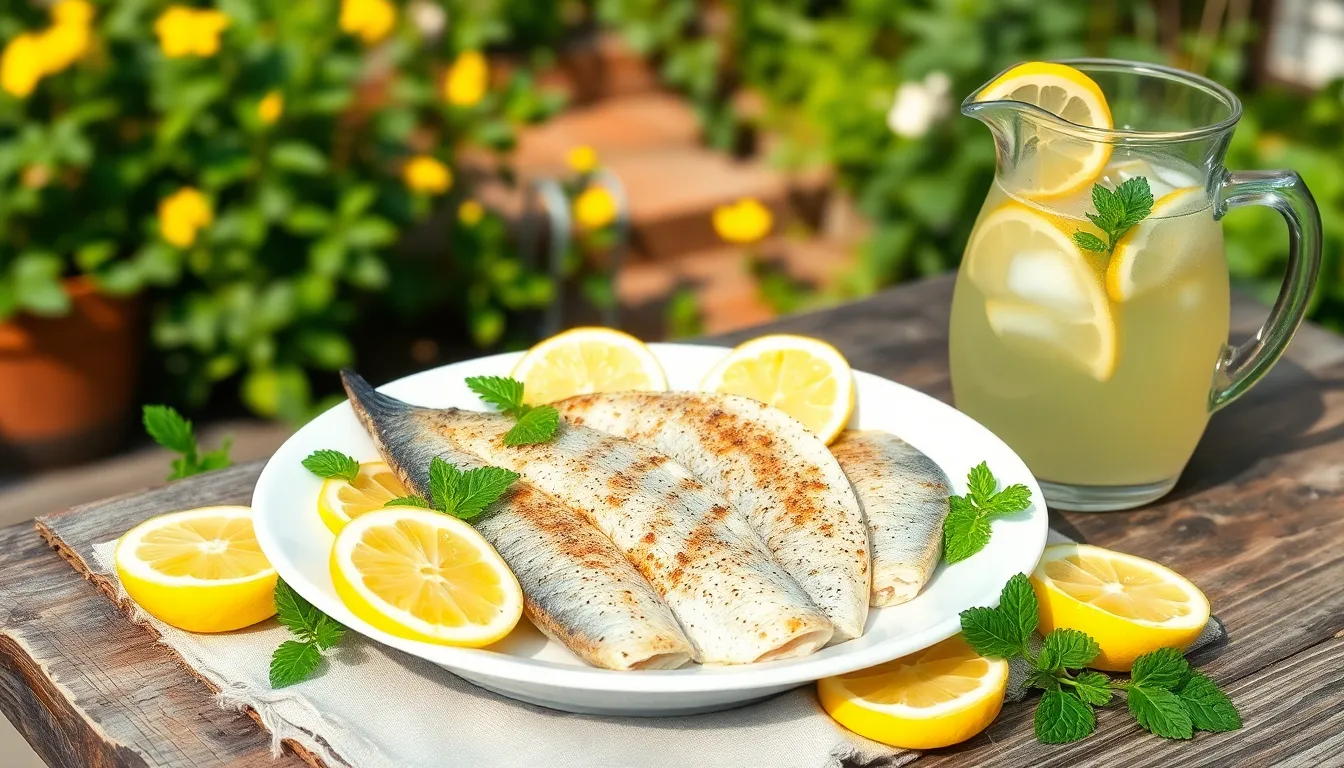
Preparing components of your fish and lemonade pairing in advance saves time and enhances flavors when you’re ready to serve. Both elements can be prepped ahead with proper planning and storage techniques.
Fish Preparation
Marinate fish fillets up to 4 hours before cooking for optimal flavor infusion. Simply combine your chosen marinade ingredients in a sealed container with the fish and refrigerate. For lemon butter fish recipes, mix your butter compound with herbs and lemon zest up to 3 days ahead and store in the refrigerator wrapped tightly in parchment paper.
Season and prepare fish fillets by trimming and portioning them the morning of your meal. Store them covered in the refrigerator until ready to cook. Avoid marinating delicate white fish for longer than 2 hours as the acidic lemon components can begin cooking the fish prematurely.
Lemonade Preparation
Lemonade syrup can be prepared up to one month in advance when stored properly in the refrigerator. Create a concentrated base by combining fresh lemon juice with simple syrup in a sealed container. This method allows you to quickly prepare fresh lemonade by simply adding water when needed.
For peach lemonade variations, the fruit syrup keeps well for up to two weeks when refrigerated in an airtight container. Prepare your garnishes like lemon wheels, mint sprigs, or peach slices the morning of serving and store them in water to maintain freshness.
Complete Meal Prep Timeline
| Timeframe | Preparation Task |
|---|---|
| 2-4 weeks ahead | Make and refrigerate lemonade syrup base |
| 1 week ahead | Prepare flavored lemonade syrups (peach, berry, etc.) |
| 1-3 days ahead | Mix compound butters for fish |
| Morning of serving | Trim and portion fish, prepare garnishes |
| 2-4 hours before | Marinate fish |
| 1 hour before | Dilute lemonade base with water and chill |
When planning for guests, having these components ready allows you to focus on perfect cooking timing rather than preparation steps. The fish will take just 15-20 minutes to cook when you’re ready to serve, while your perfectly chilled lemonade awaits in elegant glassware for an impressive presentation.
Storage Tips
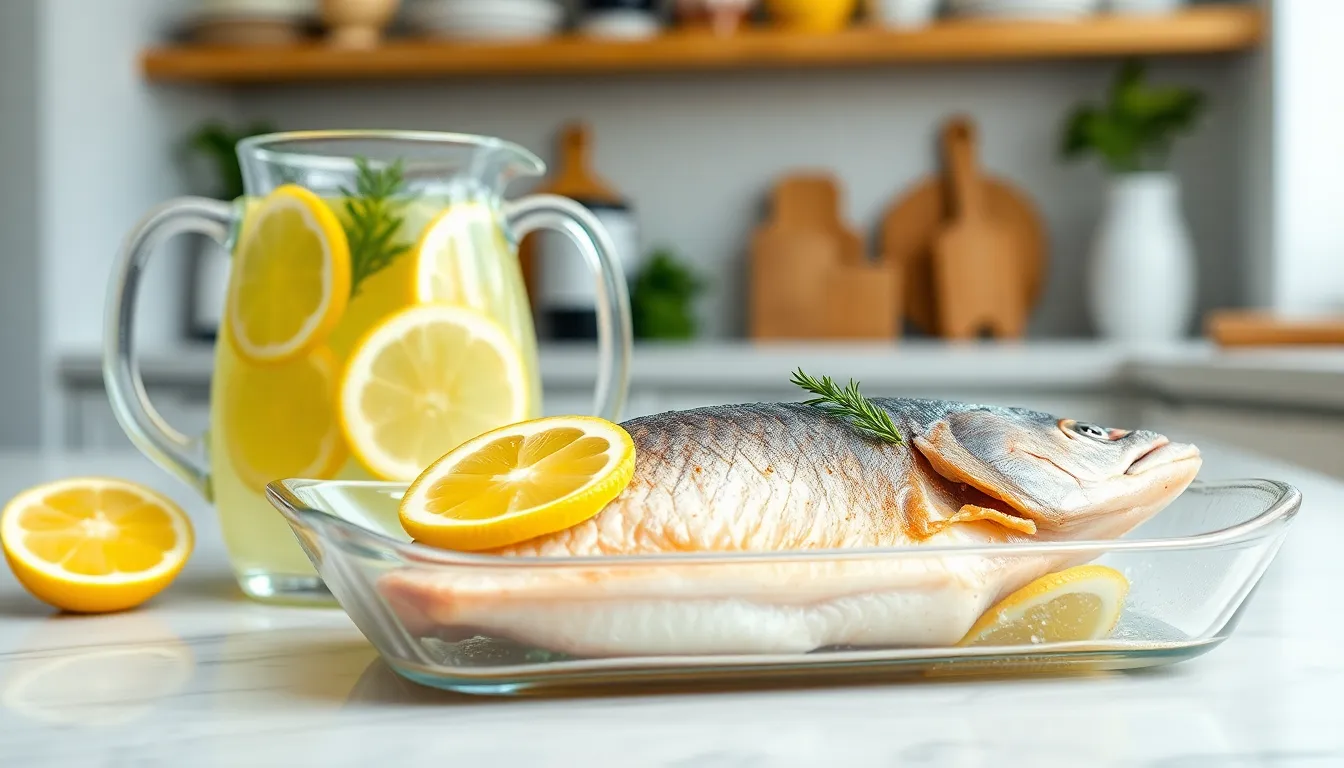
Proper storage of both your fish and lemonade ensures maximum freshness and flavor when you’re ready to enjoy this perfect pairing. Follow these expert recommendations to maintain quality and prevent spoilage.
Keeping Fish Fresh
Store fresh fish at temperatures as close to 32°F (0°C) as possible to maximize shelf life. Research shows that fish kept at 38°F has only half the shelf life compared to fish maintained at 32°F. Your refrigerator’s temperature setting plays a crucial role in preventing premature spoilage.
Fish deteriorates primarily due to three factors: bacterial growth, enzymatic breakdown, and oxidation. The same enzymes that build tissue in living fish begin breaking down the flesh after death, resulting in softer meat and eventually developing unpleasant gelatinous textures.
Try this chef-approved storage technique: place your fish in a shallow container with fresh lemon juice, allowing the juice to moisten the fish. Turn the fish occasionally to ensure even coverage. This method not only enhances flavor but also helps maintain freshness.
Limiting oxygen exposure significantly delays spoilage. Oxygen breaks down fish oils, causing rancidity and off-flavors, particularly in fatty fish varieties like salmon and mackerel. Wrap fish tightly in plastic or store in airtight containers to minimize air contact.
Preserving Your Lemonade
Lemonade fruit (a exact citrus variety) offers versatility when paired with fish dishes. These fruits maintain their freshness at room temperature for several days when left whole and unwashed.
Refrigerate lemonade fruit for 1-2 weeks to extend freshness. This storage method preserves the bright, tangy flavor that complements fish so beautifully.
Fresh homemade lemonade keeps best in a sealed glass container in your refrigerator for up to 5-7 days. The flavor actually improves after the first day as the ingredients meld together.
Pairing Preservation
Create a dual-purpose marinade with lemonade fruit and herbs like mint or basil. This mixture not only flavors your fish but can help preserve it briefly before cooking.
| Storage Method | Fish Shelf Life | Lemonade Fruit Shelf Life |
|---|---|---|
| Room temperature | Not recommended | 2-3 days (unwashed) |
| Refrigerated (32°F) | 1-2 days | 1-2 weeks |
| Refrigerated (38°F) | Less than 1 day | 1 week |
| With lemon juice | Extended by several hours | N/A |
Store leftover cooked fish and lemonade separately. Cooked fish remains safe for consumption up to 3-4 days when refrigerated promptly after cooling to room temperature.
Nutritional Benefits of Fish and Lemonade
Fish and lemonade create a nutritional powerhouse when paired together, offering complementary health benefits that enhance your overall dietary intake. This ever-changing duo delivers a perfect balance of essential nutrients that support multiple body functions.
Protein-Rich Fish Profile
Fish serves as an exceptional source of high-quality protein and vital nutrients. A typical serving of lemon herb fish (about 238 grams) provides approximately:
| Nutrient | Amount |
|---|---|
| Calories | 318 |
| Protein | 40g |
| Fat | 16g |
| Carbohydrates | 3g |
| Vitamin D | 317 IU |
Most fish varieties deliver 18-20 grams of protein per serving with moderate fat content. The omega-3 fatty acids abundant in fish support cardiovascular health and optimal brain function. These essential fatty acids reduce inflammation throughout your body and promote heart health.
Refreshing Lemonade Benefits
Authentic lemonade made from fresh lemon juice offers impressive nutritional benefits while remaining relatively low in calories. Each 100-gram serving contains:
| Nutrient | Amount |
|---|---|
| Calories | 40 kcal |
| Carbohydrates | 10g |
| Sugar | 10g |
Lemonade stands out for its high vitamin C content which functions as a powerful antioxidant in your body. This essential vitamin supports immune function strengthens skin health and contributes to overall wellness. The natural compounds in lemons help neutralize harmful free radicals and reduce inflammation.
Synergistic Nutritional Effects
The combination of fish and lemonade creates a nutritionally balanced meal that maximizes health benefits:
- Fish provides lean protein and omega-3 fatty acids that maintain muscle health and support cardiac function.
- Lemonade contributes vitamin C and antioxidants that enhance immune response and promote skin vitality.
- The citric acid in lemonade may improve your digestion by stimulating digestive enzymes.
- Lemonade aids hydration while complementing the nutrient density of fish.
- Lemon acidity potentially enhances the absorption of certain nutrients from fish.
This pairing satisfies both nutritional requirements and taste preferences, delivering a comprehensive array of nutrients that benefit your cardiovascular system immunity and overall vitality. The refreshing nature of lemonade perfectly balances the savory richness of fish creating a meal that nourishes your body and delights your taste buds.
Conclusion
The perfect harmony between fish and lemonade creates a culinary experience that’s both refreshing and satisfying. By balancing the savory richness of properly cooked fish with the bright acidity of homemade lemonade you’ll elevate your summer dining to new heights.
This pairing isn’t just delicious—it’s nutritionally sound too. The omega-3 fatty acids in fish complement the vitamin C in lemonade creating a meal that nourishes your body while delighting your taste buds.
Whether you’re grilling tilapia with a lemon marinade or serving classic fish and chips with a glass of berry-infused lemonade the possibilities are endless. Try this timeless combination at your next gathering and discover why coastal communities worldwide have treasured this pairing for generations.
Frequently Asked Questions
Why do fish and lemonade pair so well together?
Fish and lemonade create a perfect balance because the citric acid in lemonade neutralizes fishiness while complementing the natural saltiness of fish. The cool, refreshing lemonade also provides a temperature contrast to warm fish, cleansing the palate between bites. This pairing is especially effective with lighter fish varieties like tilapia and sea bass, though it works with most seafood options.
What fish varieties work best with lemonade?
Light-textured fish such as tilapia, sea bass, and snapper are ideal as they complement citrus flavors beautifully. Higher-fat fish like salmon or mackerel also work well when seasoned lightly. White fish absorbs the acid balance of lemonade, while fatty fish has its richness highlighted by the citrus. The key is choosing fresh fish and avoiding overpowering seasonings that might compete with the lemonade.
How do I make the perfect lemonade to serve with fish?
Combine 1 cup freshly squeezed lemon juice, 3/4 cup sugar, and 4 cups cold water. For best results, make a simple syrup by dissolving the sugar in hot water first, then cooling before adding lemon juice. Strain to remove pulp and seeds. Serve well-chilled in frosted glasses with ice. Optional additions include mint leaves, cucumber slices, or berries for enhanced flavor.
Can I marinate fish in lemonade?
Yes! Lemonade makes an excellent marinade base for fish. Create a mixture using equal parts lemonade, soy sauce, and olive oil, adding brown sugar, ginger, garlic, and lemon zest for depth. Marinate thin fillets for 30 minutes and thicker cuts for up to 2 hours. The acidity in lemonade helps tenderize the fish while infusing it with bright flavors.
What equipment do I need for the perfect fish and lemonade pairing?
For fish preparation: a quality fish knife, cutting board, scaling tool, seafood pan, and fish spatula. For lemonade: a lemon squeezer or reamer, measuring cups, saucepan (for simple syrup), and fine mesh strainer. Optional but helpful items include herb scissors for garnish and a glass infuser pitcher for lemonade. Nothing specialized is required, making this an accessible pairing for home cooks.
How far in advance can I prepare the fish and lemonade?
Fish can be marinated up to 4 hours before cooking, while lemon butter or sauce can be prepared up to 3 days ahead. Lemonade syrup can be made a month in advance and stored in the refrigerator—just dilute with water when ready to serve. For optimal results, cook the fish just before serving but have the lemonade completely chilled and ready to pour.
Are there any creative variations to try with this pairing?
Try salmon with a lemonade-soy-ginger marinade, mahi-mahi with lemonade and Worcestershire sauce, or catfish with creamy lemonade dressing. For lemonade variations, experiment with ginger, herbs like basil or rosemary, or add cucumber and mint for a spa-like refreshment. You can even use lemonade in fish batter for gourmet fish and chips or create a spicy version with jalapeño.
What are the nutritional benefits of pairing fish with lemonade?
This pairing creates a nutritional powerhouse. Fish provides high-quality protein and omega-3 fatty acids that support heart health, while lemonade offers vitamin C and antioxidants that boost immunity and skin health. The vitamin C in lemonade also aids iron absorption from the fish. Together, they create a balanced meal that satisfies nutritional needs while being light and refreshing.
How should I store leftover fish and lemonade?
Store cooked fish in an airtight container in the refrigerator for up to 2 days. For maximum freshness, keep fish at temperatures close to 32°F (0°C). Homemade lemonade will keep in a sealed glass container in the refrigerator for 5-7 days. To prevent flavor loss, store lemonade separate from ice and avoid exposing it repeatedly to room temperature.
What’s the history behind the fish and lemonade combination?
This refreshing pairing has roots in coastal cuisines worldwide, particularly in Mediterranean and Middle Eastern cooking. Lemonade itself dates back to ancient Egypt, while serving fish with citrus is a culinary tradition spanning thousands of years. The combination gained popularity in hot climates where the refreshing qualities of lemonade perfectly complement locally caught seafood, creating a natural partnership that has stood the test of time.






